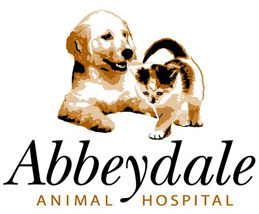Library
-
Your cat has allergies. These instructions have been provided by your veterinary healthcare team to help you treat your cat for her specific allergy. The instructions that relate to your cat are checked.
-
Your dog has allergies. These instructions have been provided by your veterinary healthcare team to help you treat your dog for his specific allergy. The instructions that relate to your dog are checked.
-
This handout summarizes the various forms of treatment for cats with asthma and includes a list of treatment instructions for home care. Treatment options include corticosteroids, bronchodilators, and inhaler use. Warning signs for cat owners to watch out for are included.
-
On the hunt, Treeing Walkers are alert, intense, and loud, sounding off with their big coonhound bawl. But don't let that fool you; at home they are calm, affectionate, and great lovers of pillows and blankets.
-
Triamcinolone acetonide is given by mouth or injection and is used on and off label in dogs, cats, and horses to treat Addison’s disease, inflammatory conditions, and immune-mediated diseases, among others. Give as directed.
-
Triamcinolone acetonide otic is a corticosteroid used to treat inflammation in the ears of cats and dogs. It may be specially compounded and/or combined into a formulation with other medications. Its use may be off label depending on product formulation and species. Triamcinolone otic comes in liquid drops, ointment, cream, and gel forms.
-
Triamcinolone acetonide topical (brand names Genesis®, Vetalog®, others) is a corticosteroid used to treat itching, skin irritation, and rashes in dogs. It may be specially compounded and/or combined into a formulation with other medications. It is used off label in other species. Triamcinolone topical comes in cream and spray forms.
-
A trichobezoar, or hairball, can form when a pet ingests hair that does not pass through the intestinal tract. When this occurs, the hairball may be vomited up uneventfully or it may lead to a gastrointestinal obstruction. If a trichobezoar causes an obstruction, surgical management is necessary.
-
A trichobezoar, or hairball, can form when a dog ingests hair that does not pass through the intestinal tract. When this occurs, the hairball may be vomited up uneventfully or it may lead to a gastrointestinal obstruction. If a trichobezoar causes an obstruction, surgical management is necessary.
-
Trifluridine is an antiviral topical medication used to treat viral infections of the eye, such as herpesvirus-1 in cats. Give as directed. Side effects include eye irritation. Do not use in pets with an allergy to this medication. If a negative reaction occurs, please call the veterinary office.

